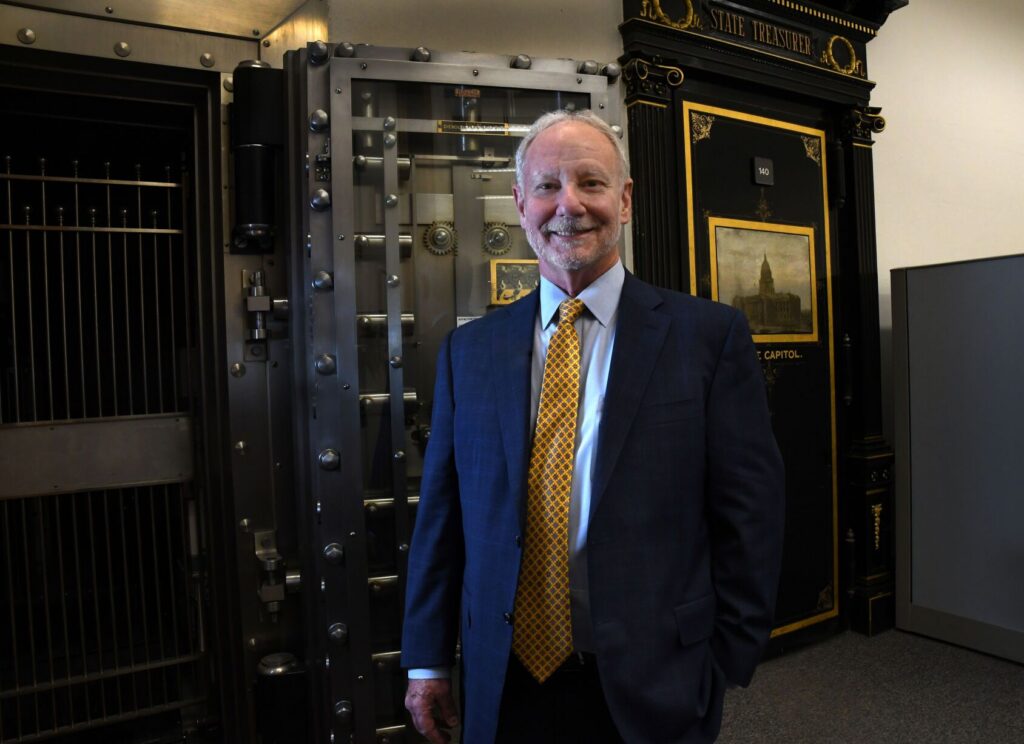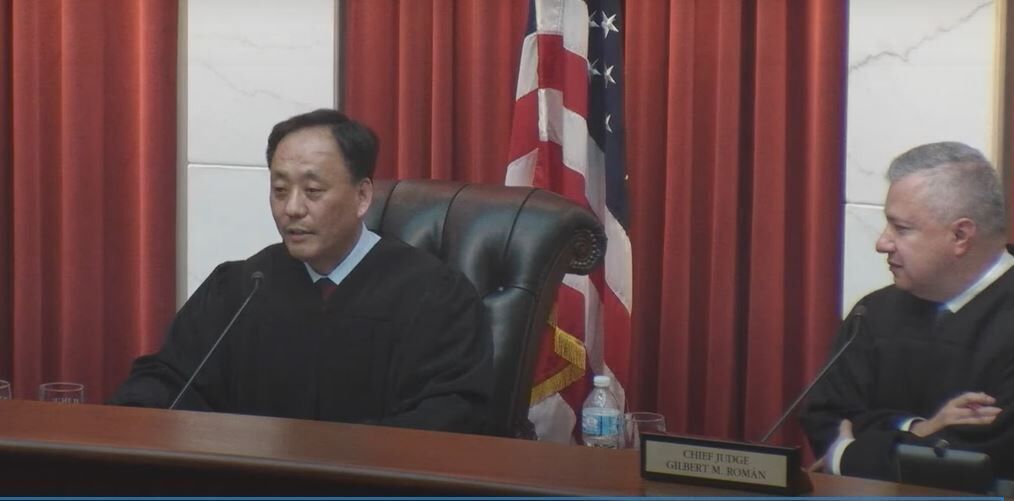‘Not gonna pro bono our way out of this problem’: Justice Melissa Hart speaks about solving access to justice
Justice Melissa Hart and some of Colorado’s leading pro bono advocates spoke last month about the initiatives currently in place to provide legal assistance to unrepresented litigants, and delivered the message that more volunteer hours simply will not aid everyone who requires help.
“We are not gonna pro bono our way out of this problem. We couldn’t. Even if every single person watching this and every single lawyer in Colorado was giving 50 hours of pro bono every year — which we all should be — there would still be unmet legal need,” said Hart, speaking at the University of Colorado’s law school on Sept. 21 as part of homecoming weekend. “So, we have to be doing other things, too.”
Hart provided a glimpse inside the Colorado Supreme Court’s decision-making in the leadup to this year’s groundbreaking inauguration of a new category of legal workers: licensed legal paraprofessionals. In June, 59 LLPs took the oath of admission, enabling them to practice law to a limited extent in family law cases, where approximately 75% of parties do not have legal representation.
The Supreme Court approved the framework in 2023 and the legislature amended state law to permit LLPs to operate. A motivating factor was the expectation that LLPs would charge clients less than an attorney for navigating high-stakes cases from child custody to divorce.
“We are not the first state to do it, but I think people around the country are recognizing that we are the state that rolled it out best. And now other states are looking to us as a model,” Hart said.

Chelsea Deeder and other graduates of the first-ever class of licensed legal paraprofessionals, a newly authorized occupation allowed to practice law to a limited extent, swear an oath of office in the Colorado Supreme Court’s courtroom on Thursday, June 20, 2024. (Stephen Swofford, Denver Gazette)
She elaborated that waiting for other states to experiment with LLP licensures was to Colorado’s benefit. During a summer training for Colorado’s LLPs, one paraprofessional from Arizona said some lawyers engaged in bullying after the program’s 2021 start. Hart noted the first state to welcome paraprofessionals, Washington, has since shut down its version, with only 45 participants at the time of its sunsetting.
“The reason it was a fail is it was designed to fail, honestly. It was designed with a really excessive amount of educational requirement. A really excessive amount of work requirement,” she said. “You had spent so much money on education and you had spent so much time completing the 3,000-hour work requirement before you could get a license that very few people wanted to do it.”
Hart said the framers of Colorado’s program did not want unrealistically high barriers in place, and also wanted to ensure paraprofessionals could make a living through their limited practice of law. To that end, it was necessary to restrict the areas where LLPs may work at first.
“Another thing that some states have said is, ‘Well, there’s a huge need for people to get help in the area of evictions.’ Absolutely true,” she continued. “But can you make a living helping people who are getting evicted? Not so much.”

A conversation entitled “Closing Colorado’s Access to Justice Gap,” which took place at the University of Colorado’s law school on Sept. 21, 2024. The participants were Justice Melissa Hart, Kristin M. Bronson and Toni-Anne Nuñez.
In the case of Colorado’s first class of LLPs, all were paralegals. Beyond their family law experience, they needed to take an ethics course and pass a licensing exam. While LLPs in other states have set up their own businesses, many of Colorado’s paraprofessionals are operating within their existing law firms.
Toni-Anne Nuñez, the director of access to justice for the Colorado and Denver bar associations who participated in the discussion with Hart, said LLPs who are volunteering in regular legal aid clinics often have more experience from their paralegal careers than some attorneys do. She noted the LLP framework constricts the type of assistance paraprofessionals may provide, as they cannot present evidence or cross-examine witnesses in court for their clients.
“There are limitations within the courtroom, but I think outside of the courtroom, there’s just so much fantastic work that they can do as far as drafting documents, parenting plans, separation agreements,” said Nuñez. “They can sit in the courtroom next to a victim of domestic violence, for instance, and really help empower them and lead them.”
Hart said the Supreme Court was the “most cautious” about the role LLPs would play in a courtroom. However, she added she has not encountered any judges who are hostile to the idea of paraprofessionals and that there would likely be an effort to adjust what LLPs can do after the program has been in place for a few years.
“We passed it knowing that would happen,” she said. “Let’s not have barriers for the sake of having barriers.”
“A lot of times the bar is very sensitive to our turf and having non-attorneys, perhaps, creep into the areas of law that we so preciously guard,” observed Kristin M. Bronson, executive director of the Colorado Lawyers Committee and the former city attorney for Denver. And yet, she continued, “I read somewhere that there are four counties in the state that don’t have any licensed attorney practicing.”

A conversation entitled “Closing Colorado’s Access to Justice Gap,” which took place at the University of Colorado’s law school on Sept. 21, 2024. The participants were Justice Melissa Hart, Kristin M. Bronson and Toni-Anne Nuñez.
Hart agreed that the notion non-attorneys would take clients away from lawyers is a red herring, considering all of the current litigants who are going unrepresented.
“I can’t tell you how many times I hear an attorney say to me, ‘I couldn’t afford me,'” added Nuñez.
The panelists spoke about other efforts to expand legal assistance, including a new legal aid funding authority the legislature created this year, a federal program recently launched to assist prisoners and a revived virtual clinic for rural litigants. Hart said she participated in the virtual clinic before her appointment to the Supreme Court, where she was asked to aid people in their estate disputes, even though that was not an area of law she ever practiced.
“It doesn’t matter. You know more than the person asking you questions,” she said. “You may not be able to take a case and handle it from beginning to end, but you know legal language and you know how to at least answer the question of, ‘Here’s the statute that you want to look at.'”
Finally, the discussion touched on the difficulty that trial judges face in handling cases with litigants who lack representation. Nuñez recalled one judge tell her about the 14 cases scheduled for her domestic relations docket. In theory, there would be 28 lawyers appearing in court.
Instead, there were only two.
“That meant all those other cases before her were people on their own trying to navigate the system,” Nuñez said.
“What are we doing?” Hart wondered in response. She noted such scenarios can be jarring to judges who are appointed after having been prosecutors or public defenders, where there is almost always representation on both sides.
“We provide training on what are your ethical boundaries in working with unrepresented litigants,” she said. “And we try to let new judges know going in: You’re not going to be dealing with lawyers a lot of the time.
“But it’s just harder. It’s really hard.”











